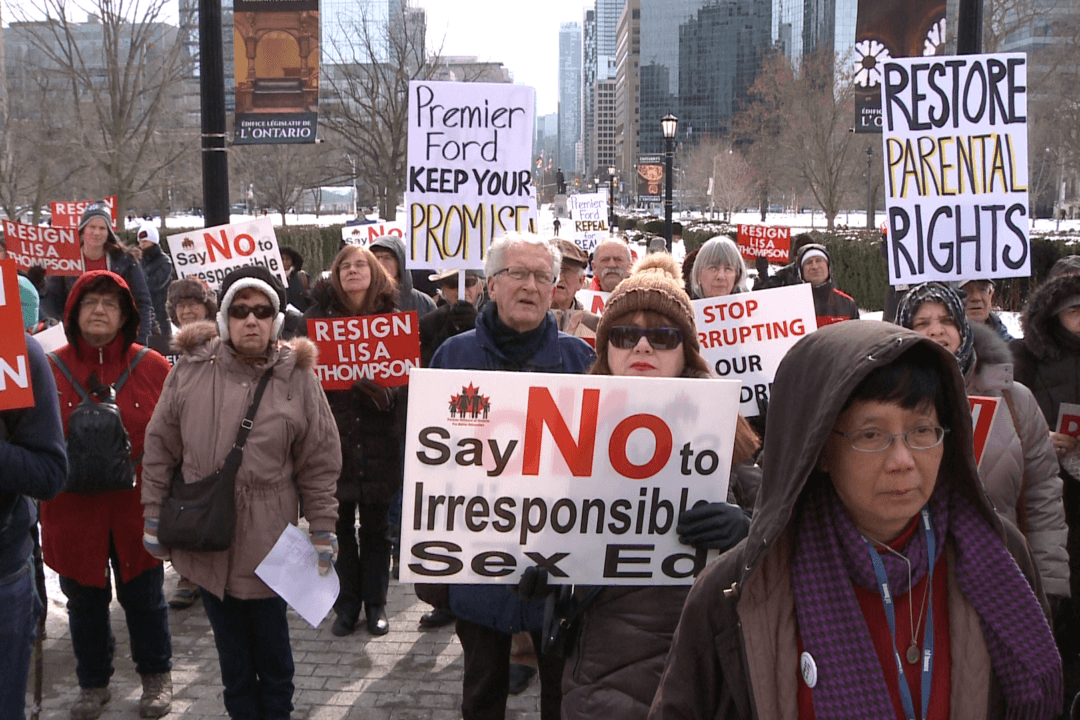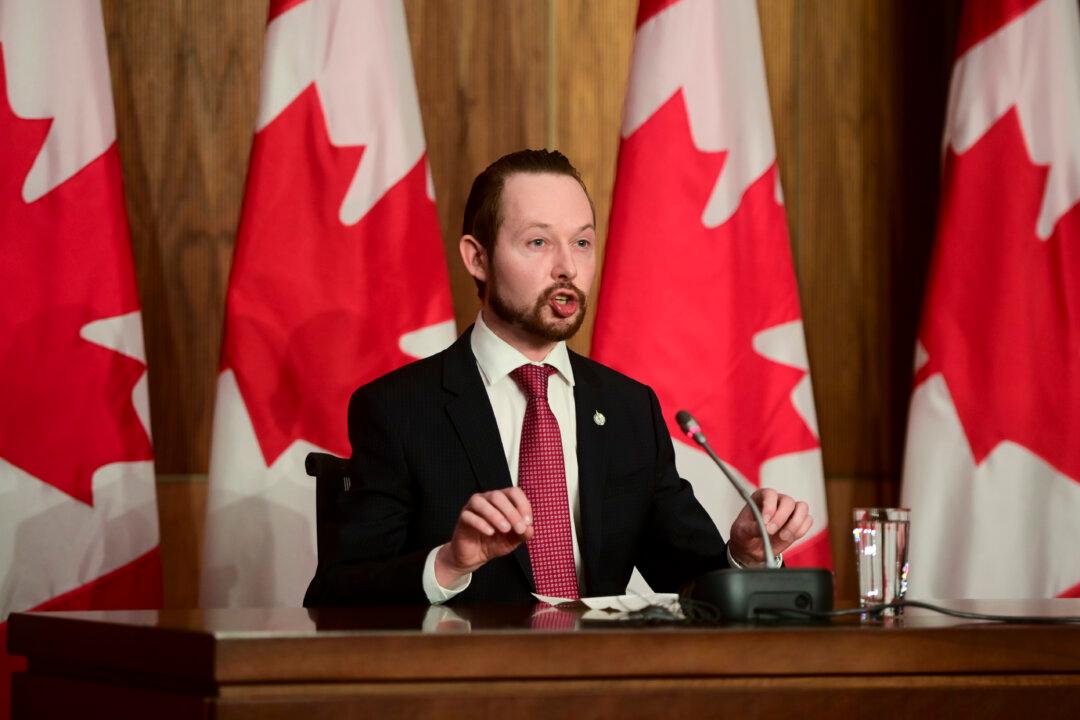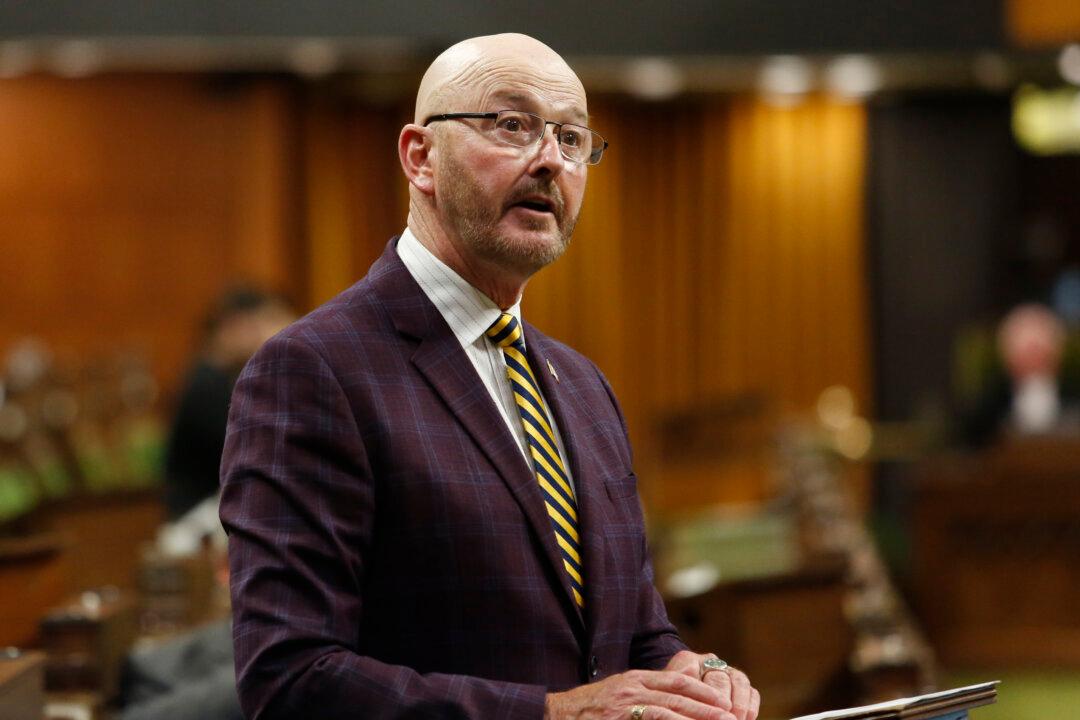TORONTO—Opponents of Ontario’s modernized 2015 sex education curriculum say they’re disappointed that a recently announced revision remains very similar to the controversial 2015 version, and vow to continue fighting it.
“I think the parents who have been opposed to the curriculum up to now are going to continue to be opposed,” said Lou Iacobelli, a former high school teacher and founder of the Parental Rights in Education Defense Fund.





